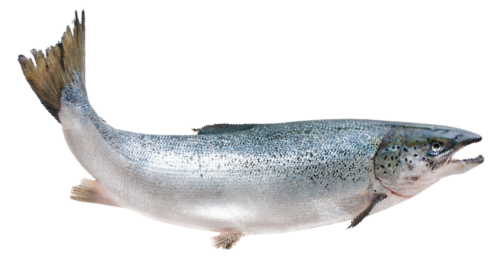But are you getting enough from your omega-3 supplementation? Fish and krill oils have become commodity items, available almost everywhere, at varying levels of quality. Instead, I urge you to try a different supplemental form. It is not an oil, but provides omega-3s, plus valuable phospholipids and peptides, too. The omega-3 that I recommend:
- Prevents heart attacks and strokes
- Reduces inflammation throughout your body
- Slows cognitive decline
- Improves focus and mental agility
- Reduces symptoms of depression
- Strengthens arteries and blood vessels
Your doctor may tell you that you need to eat more fish or start taking fish oil. But if you do not like fish, or the nasty burps that come with oil, you’re probably going to lose interest fast. Fortunately, there is a better way to get the omega-3 fatty acids you need from fish, plus valuable phospholipids and peptides that are key to a healthy, vibrant life.
You see, what your doctor is really saying is that you need omega-3s from fish. The supplemental form of omega-3s that I recommend fits the bill perfectly. It is a safe, clean, water and enzyme extraction from the head of salmon.

Why Omega-3s?
Omega-3s are healthy, polyunsaturated fats, also called “essential fatty acids.” They are called “essential” because you need to get them from dietary sources—your body doesn’t synthesize them on its own. Two of the beneficial omega-3 fatty acids found in fish are DHA (docosahexaenoic acid) and EPA (eicosapentaenoic acid). Many people still think that fats are bad, but nothing could be further from the truth. The fact is, omega-3 fatty acids are required by our bodies for many reasons:
- They help form heart, brain, and skin cells—holding them together and protecting them against damage.
- Omega-3 fatty acids inhibit blood clotting and inflammation that can lead to clogged arteries.
- They also help build and maintain flexible arteries. Flexible arteries have the “give” they need to allow greater blood flow when necessary and are not brittle. They are less prone to fluctuations in blood pressure. The end result is better blood pressure, and reduced risk of heart attack and stroke.
- EPA and DHA from fish oil improve heart health and blood profiles, relieve pain through anti-inflammatory action, enhance immunity, elevate mood, and alleviate the symptoms of ADHD, diabetes, skin diseases, menstrual pain, and more.
- DHA and phospholipids make up a great deal of our brain. In fact, the brain itself is about 60 percent fat, and 15 to 20 percent of the fat in the brain is DHA. The brain needs phospholipids and DHA to develop properly and age well.
- Low EPA levels have been associated with aggression and impulsivity.
- Your eyes need DHA for good focus. It helps the retina develop properly.
Where Do I Get Omega-3s?
There are many sources, some better than others. If you’re getting omega-3s from food, the best sources are fatty, cold-water fish, like salmon. Surprisingly, other types of fish such as tilapia do not have the amount of omega-3s contained in salmon.
You can get omega-3s from flax seeds and walnuts, but it isn’t as efficient. Plant sources contain alpha-linoleic acid (ALA), an omega-3 fatty acid that your body needs to convert into DHA and EPA. It still works, but you don’t necessarily get the helpful levels you need. Only 1-8% of ALA converts to EPA or DHA.
Plus, if your diet is high in omega-6 fats—found in refined oils, commercial baked goods, and many processed foods—it can throw off your body’s ability to convert ALA to the omega-3 forms of DHA and EPA you need.
Of course, supplementation of omega-3s can be complicated. Fish oil, recommended at dosages of many tablespoons or capsules per day, has become a common sight on grocery store shelves. With fish oil, there are a lot of variables, not the least of which is the quality of the oil itself and how well it is actually absorbed and used by the body. Krill oil, a relatively new kid on the block as far as supplements go, promises convenience (one capsule per day) and phospholipids (an added plus), but is heavily processed and not sustainable. This is why I recommend the phospholipid-bound form from salmon. It is simply and naturally extracted and provides the added benefits of phospholipids and peptides. It also contains DHA, the preferred fatty acid for cognitive development, making it the perfect choice for children and expecting mothers alike.

Phospholipids: More Than an Omega-3 Absorption Booster
Phospholipids are great at helping your body absorb and use omega-3s from fish. But they are also very helpful in their own right. A scientific study in the journal Neuroscience found that chronic, unpredictable stress can affect levels of phospholipids in the brain. But phospholipid-bound omega-3s help you keep your levels where they should be.
Phospholipids have many benefits in the body:
- They protect the mitochondria—the “engine” of your cells from oxidative damage, and help your hearing and vision stay healthy and sharp.
- They help build the myelin sheath that surrounds your nerve cells, keeping those signals firing properly.
- They help keep your brain healthy and your mood positive.
What are Peptides? A Bonus for Your Brain!
Peptides are short chains of amino acids normally formed during digestion. The same gentle process that creates the phospholipid-bound omega-3s also provides these beneficial chains of amino acids.
Peptides protect delicate blood vessels in the brain by fighting oxidative damage. They are not found in fish oil or krill oil. A scientific study of the supplemental form I recommend found that these peptides significantly reduce anxiety (in an animal model) in 14 days. The researchers discovered that it inhibited oxidative damage of neurons (the nerve cells that carry signals in the brain) by 21 percent.
Great for Cholesterol Balance
In a human, open clinical trial, 40 healthy volunteers took two tablets of phospholipid-bound omega-3 fatty acids per day without any modifications to diet or exercise habits. (I would recommend altering those, too.) After 60 days, the participants saw their triglyceride levels drop by 16 percent, their total cholesterol decrease by 10 percent, and their HDL levels—the “good cholesterol”—increase by 13 percent!
Individuals Who Are Especially Challenged By Using Fish Oil
- People with diabetes: Fish oil consumption, because of its high triglyceride content and high caloric value, has been shown to sometimes have an adverse effect on blood sugar levels.
- Individuals who have had gastric bypass or intestinal re-routing/removal: Because of impaired nutrient absorption, the enhanced delivery of omega-3s bound to phospholipids could make a difference while fish oil may not.
- Anyone with gluten sensitivity or intestinal inflammation: Whether from IBS, IBD, Crohn’s disease, or any other cause where inflammation damages the villi, it can reduce nutrient absorption. Phospholipid-bound omega-3s are more easily absorbed.
- Individuals who have had their gallbladder removed: Because of a reduced ability to digest fats found in oils, they may better tolerate a phospholipid delivery system.
Do you eat cold-water fish at least three times per week? Many people don’t, so you’re not alone. If you have any doubts at all that you’re not getting the omega-3s you need through your diet, you need to change that right away. Effective, clean, and convenient supplementation is the answer. It’s simple, it works, and you’re sure to stick with it. The fact that you don’t have to worry about harmful chemicals is a healthy bonus. Enjoy a vibrant life and start protecting your brain and heart with the omega-3s, phospholipids, and peptides in this concentrated form from salmon. You only need one per day to start making a difference.
To protect your brain, heart, and overall health, I recommend taking omega-3s from salmon once or twice per day. For greater absorption and benefits, look for a formula that also contains phospholipids and peptides.
